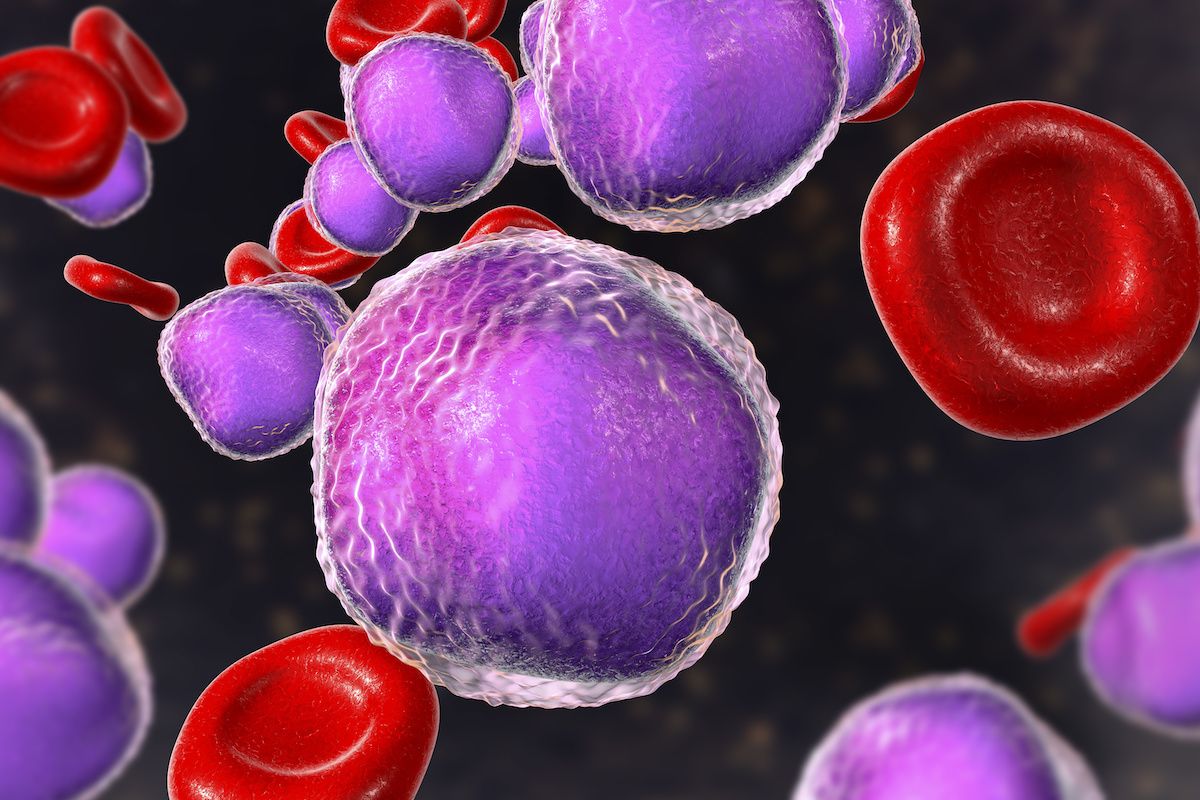Courtesy of Roswell Park Cancer Talk
Until the late 1990s, chronic myeloid leukemia (CML) was a fatal disease. “When patients received their diagnosis, we would tell them there was no cure,” recalls, Eunice Wang, MD, Chief of the Leukemia Service at Roswell Park. Everything changed when Roswell Park was authorized to offer clinical trials of a new drug called imatinib (Gleevec®). “It’s a pill that targets a specific genetic abnormality that drives the disease to grow rapidly,” says Wang.
Results of the clinical trials were extraordinary. When the dose was raised above 400 milligrams, every patient treated with Gleevec went into remission. Some patients do so well that their disease goes away, and if it stays undetectable for three or more years, half of them can stop taking the drug, because they’re cured. Based on data from those clinical trials, in 2001 the Food & Drug Administration (FDA) approved Gleevec as a standard treatment for CML — but Roswell Park patients who participated in the trials benefited long before that.
The Gleevec breakthrough underscores the importance of patient access to clinical trials of new and promising therapies. “If you’re diagnosed with cancer, you can’t wait six to 12 months for the FDA to approve a drug,” says Wang. “You need it now, especially with acute leukemia, which is a very aggressive cancer.”
To bring the latest treatments to their patients, Wang and her colleagues travel the world to exchange ideas with experts in other countries and identify new clinical trials for leukemia patients at Roswell Park. “Our patients should have access to the same trials as patients in Boston, New York, Chicago and San Francisco,” she says. “We are a major metropolitan area, and people living here should have the best available treatments.” Their efforts are paying off. In the last two years, the FDA approved nine drugs for acute leukemia, seven of which were available to eligible Roswell Park patients through clinical trials before they were approved by the FDA.
“Clinical trials can expand treatment choices for patients in several ways,” explains Wang. “For example, when a drug doesn’t work, stops working, or causes intense side effects, making it impossible for the person to continue taking it, we want to be able to switch to something else, such as a new treatment offered through a clinical trial. If your disease doesn’t respond to one treatment, we want to be waiting in the wings with the next best option. That’s how we practice medicine.”
“Some drugs extend survival by only six to 12 months, but we may be able to combine a couple of standard drugs with drugs available through clinical trials to try to further extend survival. We offer about 15 to 20 clinical trials at any given time. About half our patients enroll in some type of trial, while the other half get standard-of-care therapy.”
“For 40 years we had only standard therapies and the same old chemotherapies. But over the past few years, the pace of advances in cancer treatment has been breathtaking — and we’re at the forefront of those changes.”
For current clinical trials available at Roswell Park, visit www.roswellpark.org/clinical-trials











